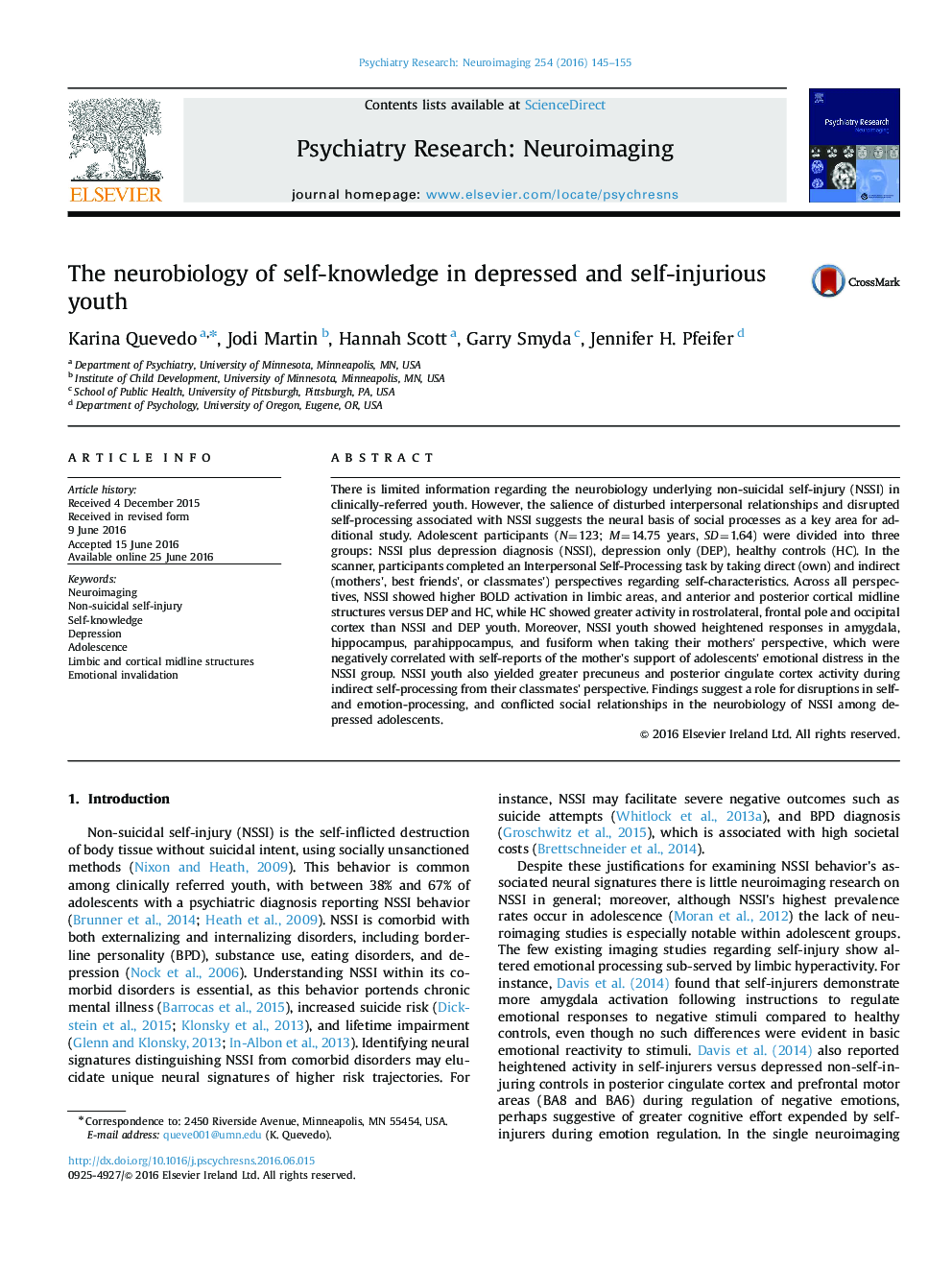| Article ID | Journal | Published Year | Pages | File Type |
|---|---|---|---|---|
| 335246 | Psychiatry Research: Neuroimaging | 2016 | 11 Pages |
•Disrupted emotions, social processes and relationships are salient to NSSI.•Identifying neural markers of NSSI can improve assessment and treatment efficiency.•NSSI was linked to limbic activation during self-reflection from mother's perspective.•Neural patterns of youth with NSSI were linked to low maternal emotional support.
There is limited information regarding the neurobiology underlying non-suicidal self-injury (NSSI) in clinically-referred youth. However, the salience of disturbed interpersonal relationships and disrupted self-processing associated with NSSI suggests the neural basis of social processes as a key area for additional study. Adolescent participants (N=123; M=14.75 years, SD=1.64) were divided into three groups: NSSI plus depression diagnosis (NSSI), depression only (DEP), healthy controls (HC). In the scanner, participants completed an Interpersonal Self-Processing task by taking direct (own) and indirect (mothers', best friends', or classmates') perspectives regarding self-characteristics. Across all perspectives, NSSI showed higher BOLD activation in limbic areas, and anterior and posterior cortical midline structures versus DEP and HC, while HC showed greater activity in rostrolateral, frontal pole and occipital cortex than NSSI and DEP youth. Moreover, NSSI youth showed heightened responses in amygdala, hippocampus, parahippocampus, and fusiform when taking their mothers' perspective, which were negatively correlated with self-reports of the mother's support of adolescents' emotional distress in the NSSI group. NSSI youth also yielded greater precuneus and posterior cingulate cortex activity during indirect self-processing from their classmates' perspective. Findings suggest a role for disruptions in self- and emotion-processing, and conflicted social relationships in the neurobiology of NSSI among depressed adolescents.
